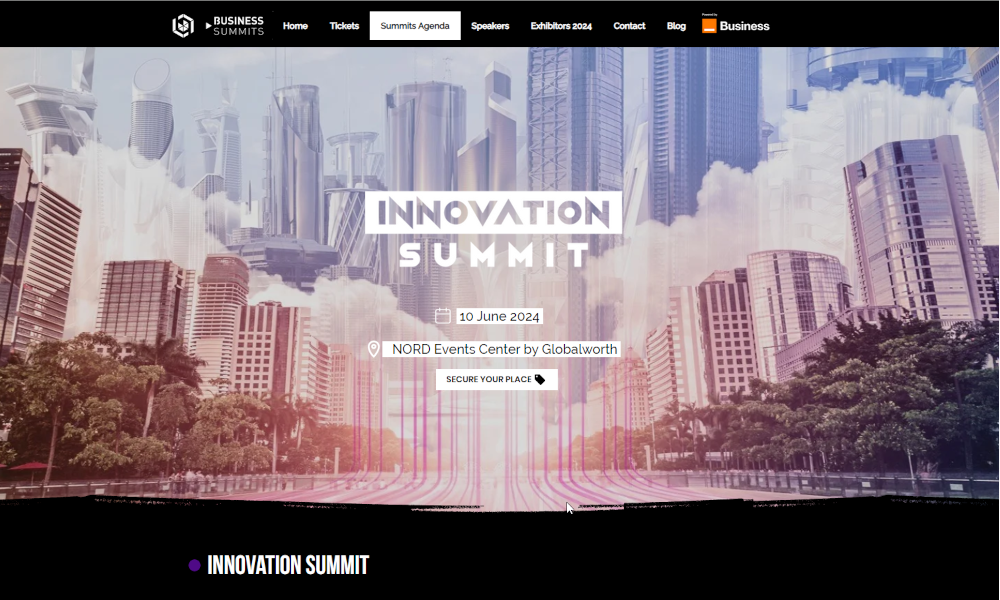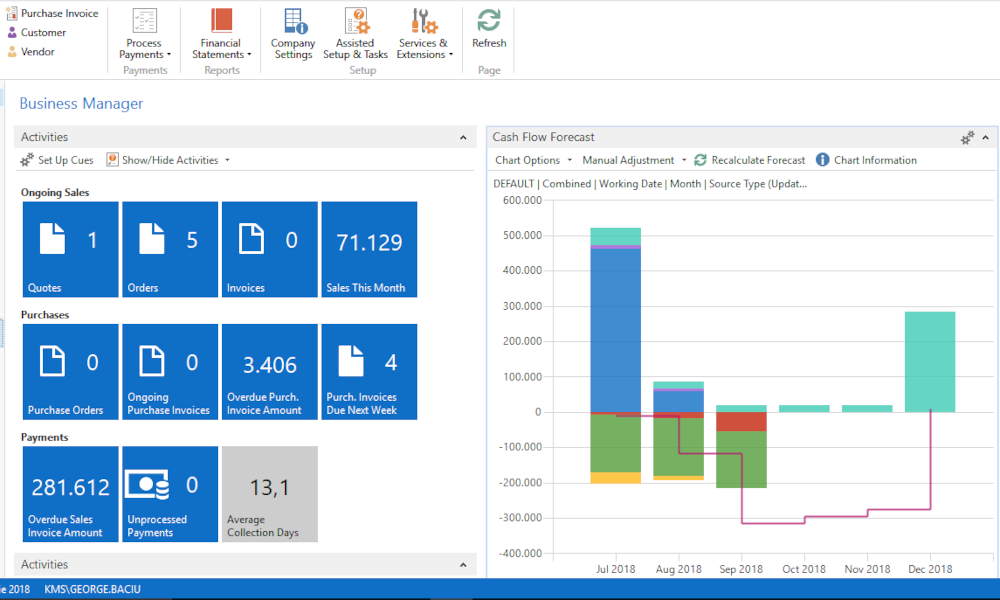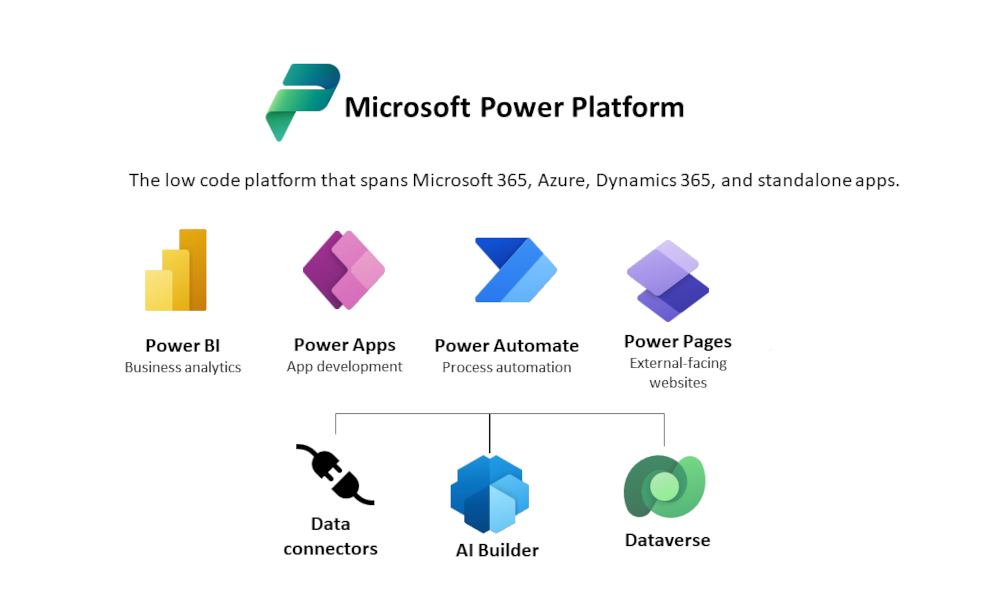If we want to implement an ERP system, we will find that there is a rich market offer for such systems. But how do we choose the best one for our needs? What criteria can guide us when evaluating the investment in such a system? What elements should we consider? We believe there are four essential elements in the selection and evaluation process of an ERP system.
1 – ERP System Functionalities
Simply put, functionalities are what the ERP system can do for your business. Functionalities translate business processes into an IT system. Usually, the functionalities of the ERP system are grouped around modules such as: Financial-Accounting, Purchases, Sales, Production, etc. In general, you do not use all the functionalities of an ERP system, or in any case, not all are equally important. If, for example, you are a manufacturing company, you will certainly need advanced inventory management, the ability to define and use bill of materials and production orders, procurement planning, etc.
Each ERP system offers a range of functionalities, and you need to find out which of these best meet your company’s business requirements. It is advisable to structure these requirements in a specification sheet and evaluate each ERP system based on how well it meets your requirements. Most of the time, the evaluation is done during a product demonstration conducted by the implementer, based on the specification sheet you provide them in advance.
When evaluating the functionalities of an ERP system, you should not only think about current needs but also what you will need in the future. The tendency will be to choose the system with the most functionalities, but be careful, the richness of functionalities comes with a price: complexity. A complex system is harder for users to assimilate.
2 – ERP System Implementation Provider
ERP systems do not implement themselves, and choosing a provider to perform the implementation is just as important as choosing the solution itself. The provider analyzes your business requirements in detail and configures the system based on them, making customizations if your business requirements are not met by the standard solution. Once the implementation is done, they will provide you with post-implementation support for an indefinite period. It is important, therefore, to find a suitable partner, considering that you will collaborate for several years.
The need to find a suitable implementation provider is even greater if you operate in a field with very specific requirements for which there are no standardized solutions on the market. In this case, the provider’s experience in implementing at companies in the same field as yours is highly relevant.
Beyond the provider’s technical expertise, which can be evaluated relatively objectively and quickly, you also need to consider the human factor, how well you feel you can get along with the provider’s team. Every company has its own organizational culture, and if there is no minimum “chemistry” between your team and the implementer’s team, misunderstandings and conflicts may undermine the implementation.
3 – ERP System Technology
Currently, the most important technical question you need to ask regarding the ERP system is whether it is Cloud-based, as the trend is for all business applications to move to the Cloud. The most significant benefit of a Cloud implementation is that you no longer need an IT infrastructure to manage within your company, just an internet connection.
There are situations where companies are not yet ready to implement in the Cloud, especially if they want to integrate the ERP system with legacy systems. If your company is in this situation and not ready for a Cloud implementation, at least ensure that the ERP system you choose will have a Cloud version available in the future, so you can make the transition at some point.
Another aspect to consider is the ease with which the application can be modified. If, for example, you estimate that the implementation will involve a high degree of customization (developments that the implementer will do only for your specific business requirements), it is good to choose a system that allows these developments to be made easily, without compromising the overall stability of the application.
From this perspective, the ERP system Dynamics 365 Business Central is specially designed to allow complex customizations through extensions that do not affect the application’s core. This is also the reason why implementation partners have already made thousands of “add-on” developments available in Microsoft App Source, which significantly extend the system’s capabilities.
4 – ERP System Price
While for the previously mentioned elements the evaluation is predominantly qualitative and quite subjective, the price, when you make a request for an offer, will be well-determined and will help you differentiate between various offers. However, you need to think that the price itself says nothing, it only reflects the value of the other elements.
The price includes the cost of software licenses and implementation services. The software licenses ensure your right to use the system’s functionalities, and from this perspective, you need to ensure that all the functionalities you need are included, without paying for functionalities you will not use. Usually, the offers have a certain granularity regarding the functionalities.
Software licenses are per user, and there should be flexibility in the license price based on what a user needs to do in the system. If, for example, you have users who do not need to enter transactions in the system but only to consult existing information and possibly update some data, then the license price for such a user should be significantly lower.
Regarding implementation services, the provider’s reputation, references you can obtain about them, the size of the implementation team, all these are to be considered when comparing implementation offers. Implementation services will be detailed by project stages and will contain an estimate with the number of hours allocated for each stage and an hourly rate.
Obviously, there is also a negotiation process, but if you want to get a better price, our recommendation is not to try to obtain it by reducing the implementation time because experience shows that if errors occur in the estimate, they usually lean towards underestimating the time. A better solution is to prioritize the implementation of the functionalities you strictly need, leaving the non-critical ones for a later stage. It is also easier from a change management perspective, as if there are too many new things to learn, users may not be able to assimilate them, and the activity will suffer.
In the end, the price you obtain should reflect as accurately as possible the value for your company of the functionalities and services you will benefit from.
Elian Solutions is part of the Bittnet Group, active for over 15 years as an implementer of the Microsoft Dynamics 365 Business Central ERP system. With a team of over 70 employees and a portfolio of over 250 clients, Elian Solutions is one of the key Microsoft partners for ERP systems.







